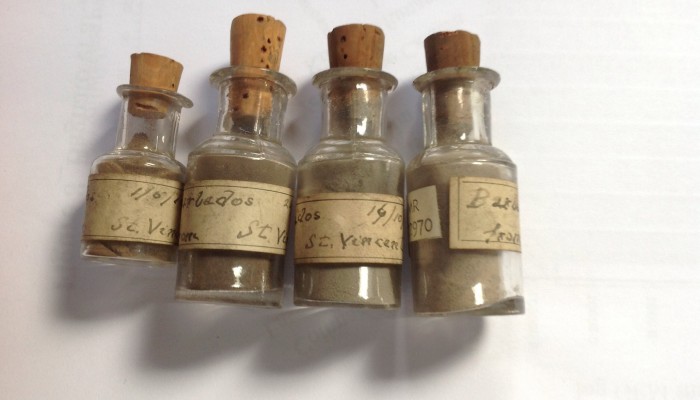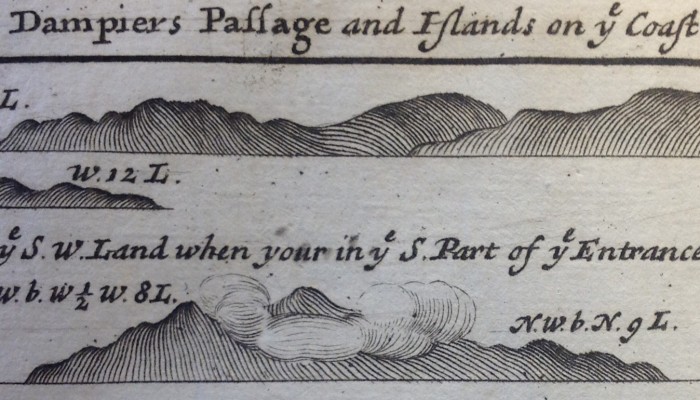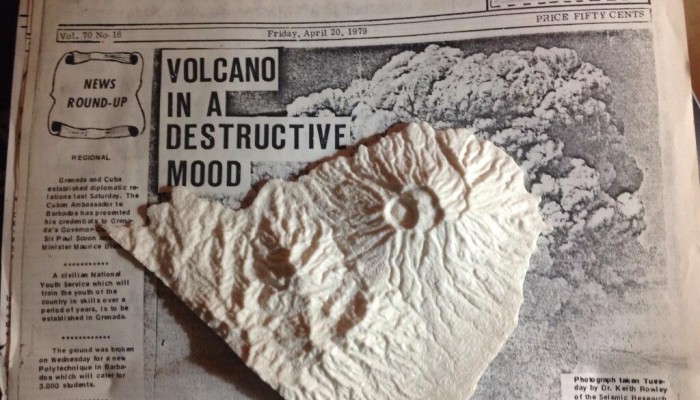A tweet from Jenni Barclay about a Pirate Scientist gave me an excuse to visit the newly opened reading rooms in the Bodleian’s Weston Library.. William Dampier was a seventeenth century pirate, and later maritime adventurer, whose several books of ‘Voyages and Discoveries’ make for fascinating reading. In 1699, he set sail in HMS Roebuck to try and find Terra Australis, a mythic ...[Read More]
Volcano Top Trumps: the Online Game
After some months of testing and refining, a free-t0-use online version of Volcanoes Top Trumps has been launched by Winning Moves. This should greatly extend the reach of Volcanoes Top Trumps – which is a fun and educational game about volcanoes that has spun off from the NERC – ESRC funded project ‘STREVA‘ – Strengthening Resilience in Volcanic Areas. Why not play t ...[Read More]
There’s (volcanic) dust in the archives

There’s not much that beats the thrill of discovery.. particularly when it turns up in your own backyard. This summer, I have been on the hunt for records and reports of the 1902 eruptions of St Vincent, a lush volcanic island in the Eastern Caribbean. There are indeed many reports from this eruption, carefully documented in official records from the time. But, more surprisingly, there are ...[Read More]
Summer Reading – H is for Hawk
Much of my time is consumed with reading, but it is almost always for a purpose: essays, assignments, proposals, drafts of papers, re-drafts of papers, papers for classes, for review.. This almost always means reading fast, with a goal: to measure, assess, hone, distil, critique and rewrite. Often, it means hacking through tangled and cumbersome layers of scientific prose, to reveal the central ...[Read More]
An eyewitness account of the 1812 eruption of the Soufrière of St Vincent
Sharing a post from London Volcano
An account of the 1718 eruption of the Soufrière of St Vincent
Reblogging a post of mine from LondonVolcano
Looking ahead to the London Volcano and Universities UK Week, 2014
Over at http://LondonVolcano.com we are getting ready for Universities UK Week, and the launch of our ‘live’ volcano in front of London’s Natural History Museum
Friday Field Photo – St Vincent, 1902
Today’s field photo is by Tempest Anderson, of the ‘Roseau Dry River flowing with Boiling Mud’, a picture taken in the aftermath of the May 1902 eruptions of the Soufrière of St Vincent. The full published caption explains the origins of this boiling mud – a phenomenon we now call a lahar: ‘This is a small stream in the Wallibu Basin. When the water undermines the ba ...[Read More]
How NOT to write to an editor
Over on the Nature Methods blogs site, there are some interesting posts with advice for authors on how to prepare cover letters, rebuttal letters, appeal letters and the like. Here’s an example of ‘how NOT to write to an editor‘, based on a recent experience of mine. I shall let the author remain anonymous, but my hunch is that this is not an isolated example of this sort of beha ...[Read More]
An 18th Century London Volcano
We are now just three weeks away from the launch of an ambitious public engagement project – ‘London Volcano‘. This will see us build a large scale-model of volcano on the front lawn of London’s Natural History Museum. This activity is all part of Universities UK Week 2014, and our aim is to highlight the work we are doing on ‘Strengthening Resilience in Volcanic Area ...[Read More]


